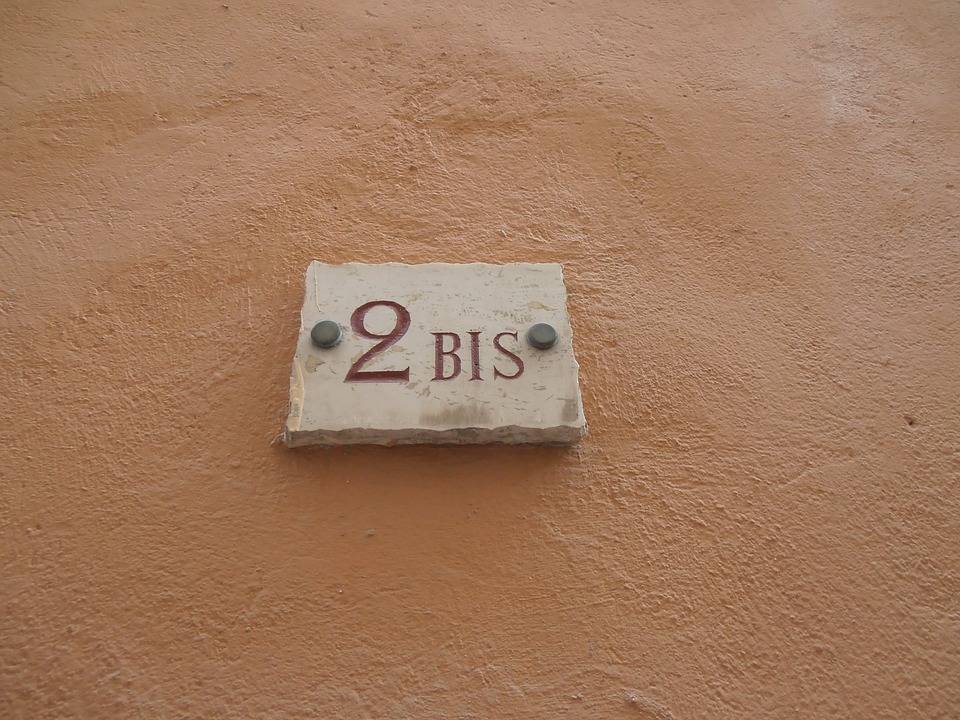Think You Know Everything About the Number Two in French? Think Again! Deuxième vs. Seconde & More Posted by Josh Dougherty on Feb 9, 2017 in Uncategorized
January is over and February has crept its cold little head in. Since it’s the second month now, I thought it would be appropriate to talk about the number two in all its forms in the French language.
Un, deux, trois… it’s one of the first steps to a relationship with French along with greetings, days of the week, and body parts. The number deux might seem pretty straightforward, and it is, but it can actually be found all throughout the language in different ways. Today, we’re going to study vocabulary relating to ‘two,’ prefixes and suffixes, expressions, and the difference between deuxième and seconde. Allons-y !

Two-related Vocabulary
Here’s a list of word for ways to express words related to the number two.
deux – two
deuxième – second
deuxièmement – secondly
deux fois – twice
double – dual
doublement – doubly
doubler – to double
le double – twice as much
la dualité – duality
tous les deux – both
une paire – pair
les jumeaux – twins
Prefixes and Suffixes
A prefix is an affix placed before the stem of a word, and a suffix is added after the stem. These little affixes can change one word into another. For example, adding the prefix un- to the word grateful completely changes the meaning.
In French and in English, there are 2 prefixes to express the idea of 2: bi- and di-. While they both mean the same thing, there is a difference in their origins: bi- comes from Latin and di- comes from Greek (and is generally used for scientific terms).
Bi- and bis- (sometimes added before a vowel)
bimensuel – bi-monthly
bilingue – bilingual
bicolore – two-tone
bisannuel – biannually
bicentenaire – bicentenally
un bipède – two-legged animal
un biréacteur – twinjet
une bicyclette – bicycle
bisser – to encore something (at a concert, etc.)
Di- and dis- (used of the start of the stem begins with the letter s-)
dioxide – dioxyde (having 2 oxygen atoms)
didactyle – having only 2 toes, fingers, or claws
dichlorure – dichloride (containing 2 chlorine atoms)
dicarboxylique – dicarboxylate (a salt or ester of a dicarboxylic acid)
le dithéisme – ditheism (a belief in 2 gods)
dissyllabe – disyllabic (having 2 syllables)
Verbs & Expressions
From potatoes to dogs, French is full of colorful expressions to describe any number of situations. Same goes with the number two and two-related words.
à deux pas d’ici – a stone’s throw away from here
à partir de trois, c’est la foule – two’s company, but three’s a crowd
aller de pair – to go hand in hand with
avoir une double casquette – to wear 2 hats (to have 2 roles or responsibilities)
brûler la chandelle par les deux bouts – to waste away with no regard
être à deux doigts de… – to be close to/on the brink of something
faire d’une pierre deux coups – to kill two birds with one stone
jamais deux sans trois – if something’s happened twice, it will happen a third time
avoir les deux peids sur terre – to be down to earth
avoir le cul entre deux chaises (informal) – to be undecided about something
nager entre deux eaux – to always try to please everybody
se ressembler comme deux gouttes d’eau – to be like two peas in a pod
couper la poire en deux – to meet someone halfway
c’est clair comme deux et deux font quatre – it’s as easy as ABC
dormir sur ses deux oreilles – to sleep soundly
Deuxième vs. Seconde
Do you know the difference between a cardinal number and an ordinal number? Cardinal numbers tell you the quantity and are the first ones you learn (5, 39, 76…), while ordinal numbers tell you the position of something in a list. Ordinal numbers in French are pretty easy – except for “first” which is either premier or première, you just tag on -ième to the cardinal number. There is, however, another way to say “second” that doesn’t always appear on lists of ordinal numbers.
Seconde and deuxième both mean second, but there is a small nuance between the two. Simply put, if there are only 2 things in a list, you use seconde. If there are more than 2, you use deuxième.
World War II in French is called La Seconde Guerre mondiale. Deuxième is not used because that war was the second and last in this series of two (and hopefully the last).
Something else worth noting is the pronunciation of the word seconde. The C sound in French is hard (meaning it sounds like a K); the soft counterpart is pronounced when the C has a cedilla, ç. The C in seconde, however, is not pronounced like either of those. Instead, it sounds like an English hard G (like in the word good).

Build vocabulary, practice pronunciation, and more with Transparent Language Online. Available anytime, anywhere, on any device.




Comments:
helena:
C’est clair comme deux et deux font quatre 🙂
Especially liked the expressions and the difference seconde-deuxieme.